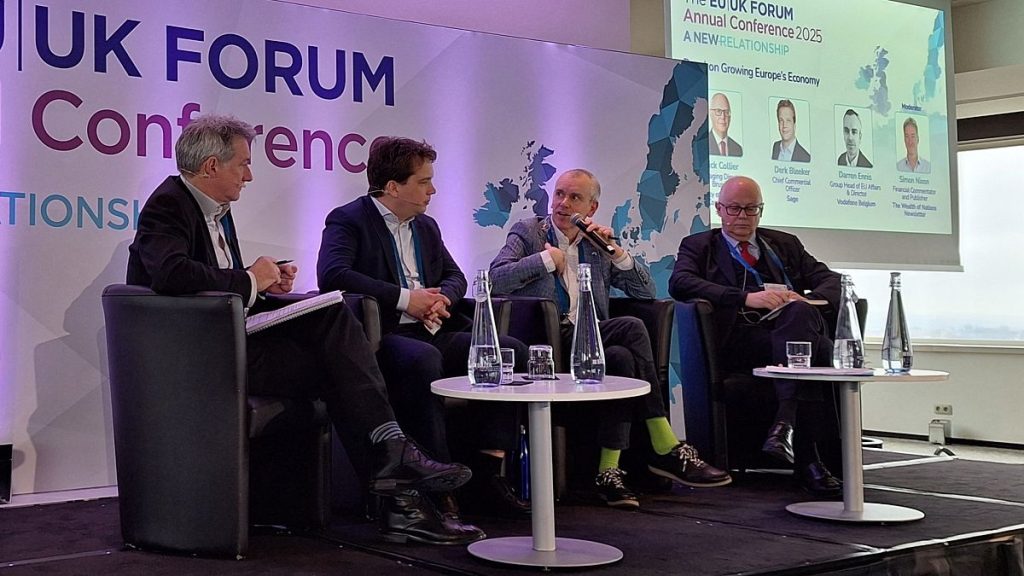The European telecommunications landscape is facing significant challenges, primarily stemming from a perceived lack of support from the European Union, according to Vodafone, a major player in the industry. Vodafone argues that the EU’s approach to the sector is hindering growth and investment, ultimately impacting the broader European economy. This criticism comes as Vodafone finalizes a merger with Three UK, a deal approved by British regulators but highlighting the diverging approaches between the UK and the EU concerning telecoms consolidation.
Vodafone contends that the EU’s approach to competition and mergers is overly defensive and protectionist, stifling innovation and preventing the emergence of larger, more globally competitive telecom companies. The company’s head of EU affairs, Darren Ennis, emphasizes the need for a shift in mindset, from a focus on preserving a fragmented market to a more proactive stance that encourages investment and infrastructure development. While acknowledging the complexities of EU decision-making, Ennis suggests that the main resistance to necessary changes comes not from Brussels officials but from member state representatives who often reject proposals supported by experts and industry leaders. This disconnect between expert recommendations and national-level decisions creates a frustrating cycle that impedes progress.
The core issue, as highlighted by Vodafone and a report authored by former Italian Prime Minister Mario Draghi, is the fragmentation of the European telecoms market. With over 30 mobile network operators in the EU, compared to a handful in the US and China, European companies lack the scale and profitability to invest significantly in crucial infrastructure upgrades like fiber optics and 5G networks. This underinvestment has far-reaching consequences, limiting access to high-speed internet for citizens and hindering the digital transformation of the European economy. Vodafone argues that by obstructing the consolidation of the telecoms market, the EU is inadvertently sabotaging its own economic growth and competitiveness on the global stage. Outdated processes and a lack of investment in digital infrastructure lead to lower productivity, leaving the EU lagging behind its international rivals.
While Vodafone advocates for a modernization of competition rules to facilitate mergers and acquisitions, concerns exist regarding the potential negative impact on consumers. Critics argue that reducing the number of players in the market could lead to less choice, higher prices, and potentially lower quality of service. The EU has historically blocked several telecom mergers due to antitrust concerns, often requiring the creation of new competitors as a condition for approval. However, Vodafone points to the recent approval of its merger with Three UK by the UK’s Competition and Markets Authority (CMA) as a positive example of a more forward-thinking approach to competition regulation.
The CMA’s decision to approve the Vodafone-Three merger, following Vodafone’s commitment to invest billions in 5G infrastructure and cap prices on certain mobile plans, is seen by Vodafone as a potential model for the EU to emulate. Vodafone’s CEO, Margherita Della Valle, echoes this sentiment, emphasizing the UK’s proactive approach to modernizing the telecoms sector. This case highlights the divergence between the UK and the EU in their approaches to competition regulation in the telecoms sector, with the UK seemingly more willing to embrace consolidation in exchange for infrastructure investment and consumer protections.
The debate over the future of the European telecoms market continues, with Vodafone urging the EU to reconsider its stance on competition and consolidation. The company argues that allowing larger players to emerge will unlock crucial investment in infrastructure and drive innovation, ultimately benefiting both consumers and the broader European economy. However, the EU must navigate the delicate balance between promoting competition and enabling the necessary investments for a thriving digital future. The tension between these competing priorities will continue to shape the evolution of the European telecoms landscape in the years to come. The ultimate outcome depends on the willingness of both the EU and member states to adapt their policies to the rapidly evolving technological and competitive landscape.














